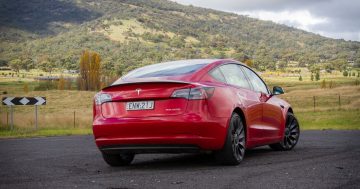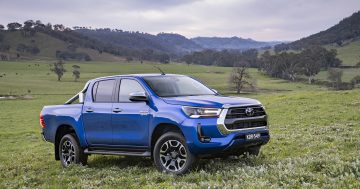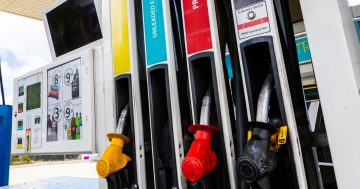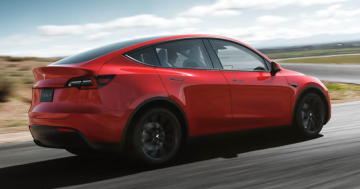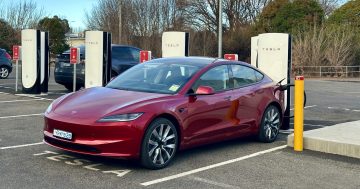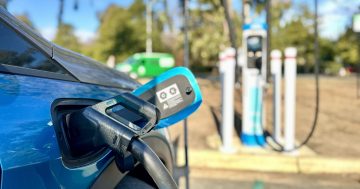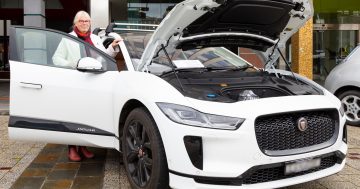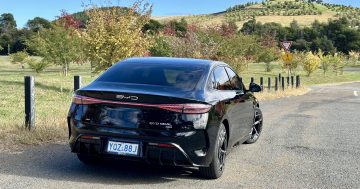
Canberra’s top model in 2023, the electric Tesla Model Y. A Fuel Efficiency Standard would mean more EV models and lower prices. Photo: Tesla.
The shift is on. Whether you like it or not, electric vehicles have moved beyond the novelty phase to be a significant and growing segment of the automotive market in Australia, reflecting what has been happening across the globe.
This week’s new car sales figures clearly show a trend to exponential take-up. EV sales in Australia doubled in 2023 to 7 per cent of new cars, while the increase in ACT was closer to tripling the previous year’s number. Eighteen per cent of new sales in the ACT last year were EVs.
With new brands hitting the market, including Volkswagen this year, there is an increasing, but still insufficient, range of models from runabouts to SUVs from which to choose.
Driving range also continues to rise, as does charging infrastructure, but price remains a barrier, particularly with the second-hand market still developing.
Some ACT incomes may be able to match the price tags, but for many, an EV is out of reach despite the clear demand for a vehicle that doesn’t gulp petrol and empty the wallet.
Lower running costs are good for consumers and zero emissions are good for the environment, and this week’s update on global temperatures only makes transport decarbonisation more urgent.
Yet, the federal government is tarrying on introducing a Fuel Efficiency Standard that would pave the way for carmakers to give the Australian market the EVs it needs to provide much more choice and bring prices down.
The government has been consulting on the measure, which other countries have had for over a year, and committed to it in April when it launched the National Electric Vehicle Strategy.
Obviously, it has hit some speed bumps with entrenched interests that do not want EVs or other vehicles that will save drivers money in the fast lane at the expense of current popular but thirstier models.
The Federal Chamber of Automotive Industries insists that the industry wants a Fuel Efficiency Standard as long as there are no losers.
Chief executive Tony Weber said the availability and affordability of products across all market segments would be the key to a successful Fuel Efficiency Standard.
“Now we have the process underway, it’s critical that the federal government takes the time to get it right. That is essential for environmental outcomes and for consumers.”
But the longer the government talks, the more Australian motorists – and the environment – are missing out.
Frustration is rightly growing in the EV industry and among groups such as the Climate Council at the government’s bid to apparently seek a political fix rather than lead on such a transformative issue.
EV sales will continue to accelerate – there is no stopping them now – but all agree a strong Fuel Efficiency Standard is the key to Australia making the switch at a meaningful pace.
Without it, carmakers will continue to withhold models from the market in favour of others that don’t measure up in countries that do have a standard, basically dumping dirty and expensive-to-run gas-guzzlers in Australia.
It’s time for Labor to prove its climate and cost-of-living credentials.












